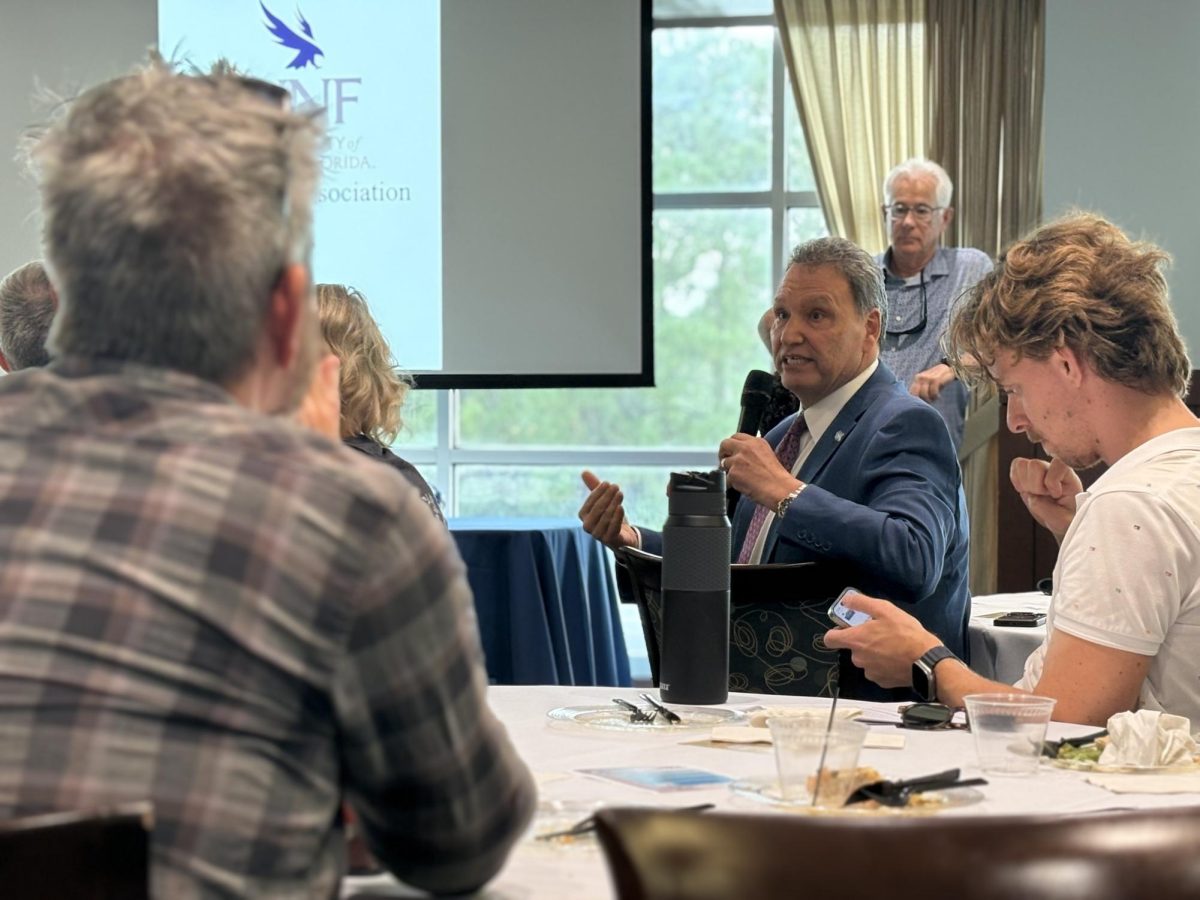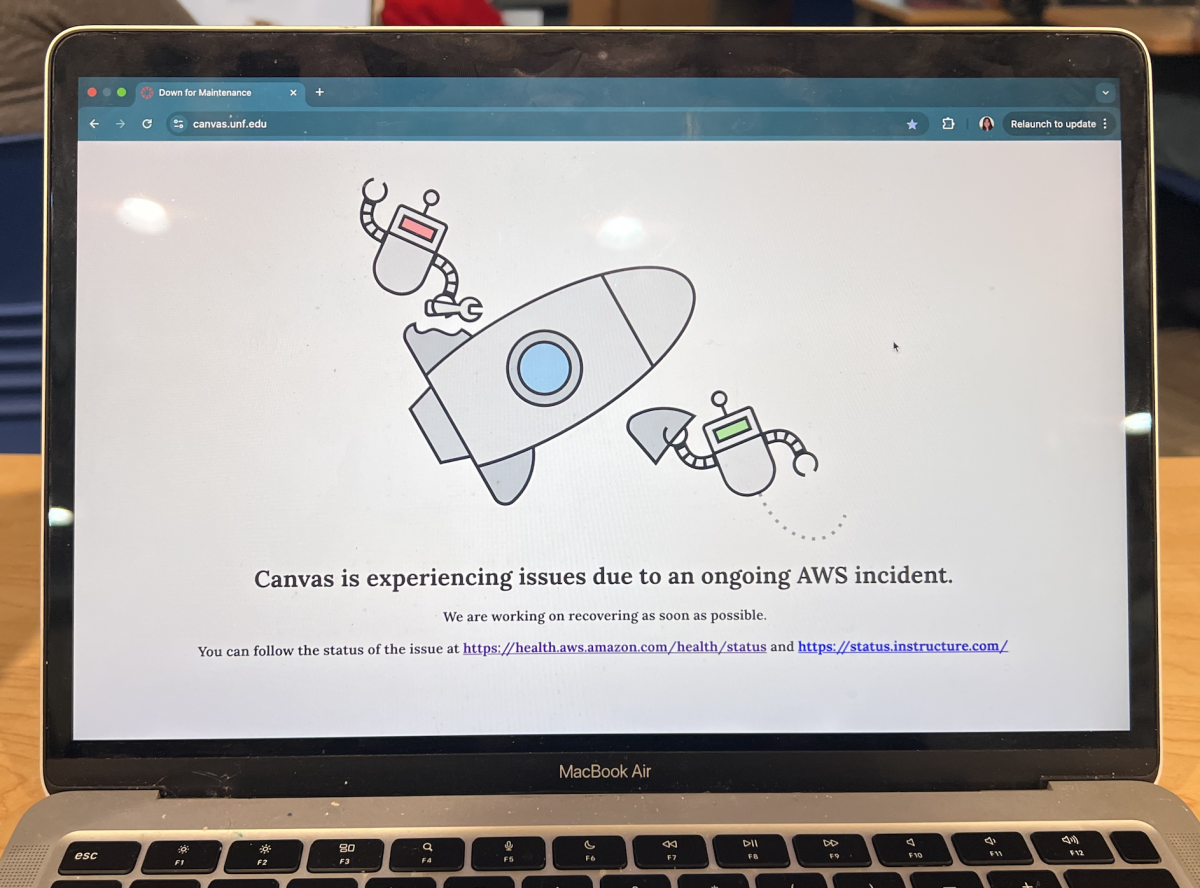
The start of college is a big transition, and for many students, it can be a little overwhelming. This may not leave you wishing for home or things more familiar, but it can cause the same kind of feelings of irritation, worry and sadness as homesickness.
“Homesickness is when the students are asked to do things they haven’t been doing,” Director of the Counseling Center, Dr. Andrew King, said.
It’s the difference between how much students have to adjust, meaning that it’s not uncommon to see greater signs of it in students from farther away or smaller towns than from students who’ve grown up in Jacksonville.
Ryan Kielmann, an exercise science freshman, said two things he’s the most concerned about going into his first year away: the loss of his old high school routine, where he had his parents around all the time, and the fact that he’s going to have to balance his finances all on his own.
“My mom and I are really close, so it’s going to be strange not getting to see her everyday,” Kielmann said.
“It shows up in academic scenarios first,” King said. Students who are struggling to adapt often criticize their surroundings, assuming there’s a problem with where they are, the courses they’re in or their professors.
For example, “if a student is saying ‘this professor hates me,’ the issue probably isn’t the professor,” King said. “You’re one out of so many students and the professor doesn’t know you well enough to hate you.” In situations like this, it’s more a matter of figuring out what a student is really dissatisfied with and taking steps toward resolving that issue.
One way to begin that process is to familiarize yourself with these new settings. Especially for students who aren’t from around Jacksonville, it helps to explore the surrounding area. Little things like knowing what’s in the Town Center and where the nearest Wal-Mart is can make living on your own seem less daunting.
“Maybe you’re a biology major, and that’s the only building you’re going to be in, but go explore the education building, just so you know what it is,” King said. Knowing where things are on campus helps make it feel more like your own space, which makes us feel more confident here.
The best way of overcoming or avoiding feelings of homesickness is to make new connections here at UNF.
“You’ve got to create some space and some room for new connections, because if you aren’t open to that, if you don’t create at least a little bit of a wedge for this new connection to take hold, you’re not going to feel connected to the people here at UNF,” King said.
Kennedy Williams, an english junior, moved to UNF from Kansas City, MO and said the biggest challenge for her was the way she went from seeing her family every day to living across the country, where she couldn’t just go upstairs and be where they were.
“I was blessed with some really great roommates my freshman year, and they did a great job of being there for me if I was upset or just having a rough day,” Williams said.
Especially in freshman housing, a first step toward familiarity is using those in close proximity to you as a launching point. Go to the cafe with your roommate and neighbors and whoever else looks like they’re walking around aimlessly searching for food. The people you meet in the dorms or first few semesters of classes may not be the friend group you spend your whole college career with, but connecting with them is a valuable experience.
From there, it helps to find ways to get involved. King said that one of the things he likes most about UNF “is they have those kind of specialty areas where students can connect if they have that particular need.”
Seek out groups that pique your interest, whether that means joining a club, getting a job on campus, joining greek life, or frequenting places like the game room, gym, LGBT resource center or Military Veterans Resource Center (MVRC).
It’s also helpful to create relationships with academic advisors and professors at the university, because they can offer guidance and help students gain confidence in a way that making friends with their peers can’t.
If a student has tried these things and is still feeling dissatisfied or out of place, then it may be time to turn to resources such as the Counseling Center. King said they work with students, not just to hear what’s going on and why they may be struggling, but also to help them develop skills that will make them feel more at home at UNF.
For more information, visit the Counseling Center in Building 2, Room 2300. Counselors are available 8 a.m.-5 p.m., Monday through Friday. For help after hours, call (904) 620-2602.
__
For more information or news tips, or if you see an error in this story or have any compliments or concerns, contact editor@unfspinnaker.com.







